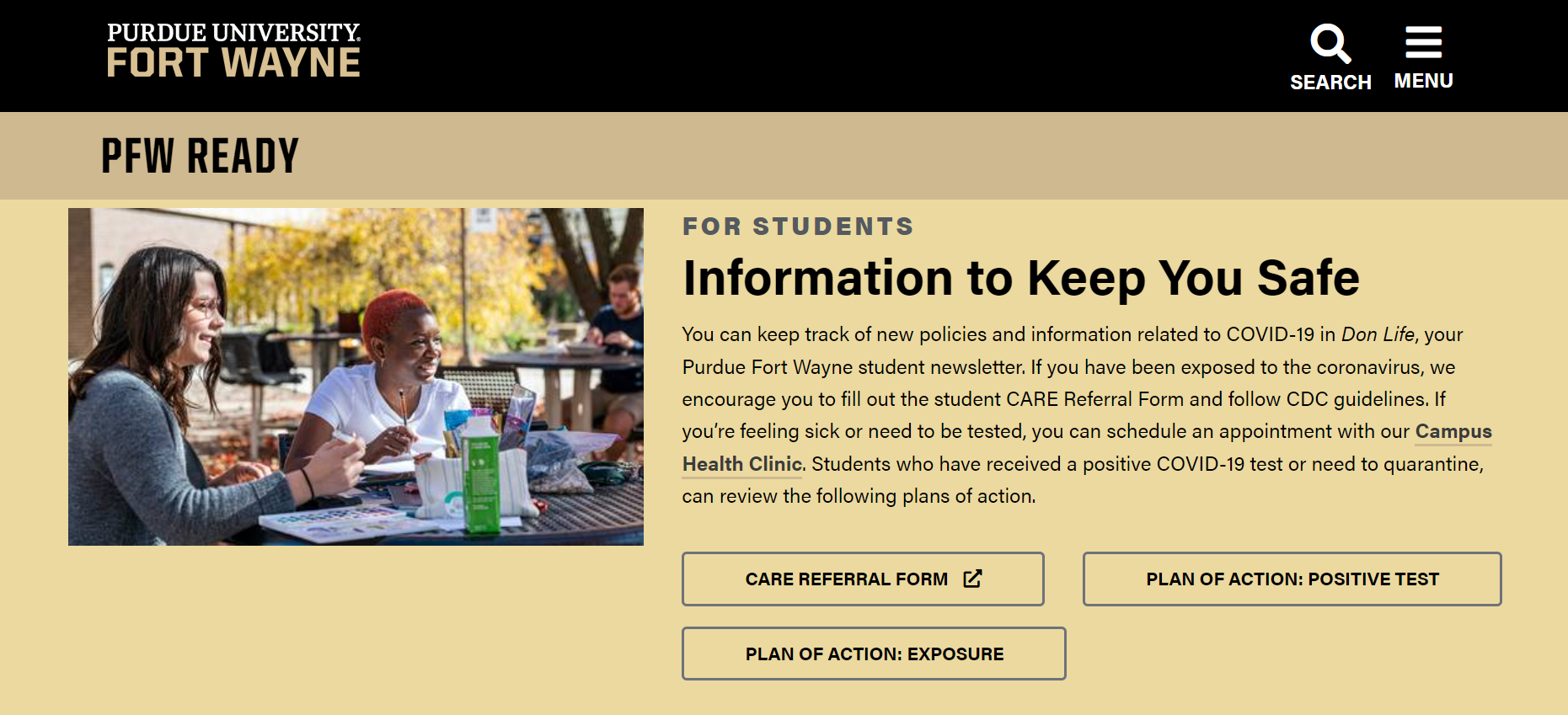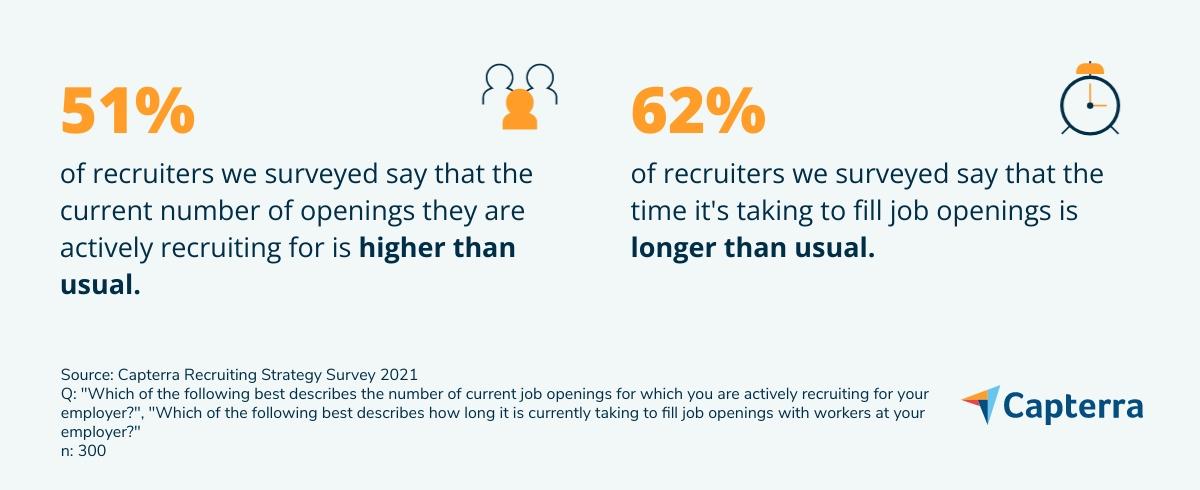Scenario planning helps your business prepare for uncertainty. Learn more about it here.
According to Gartner’s Hype Cycle, scenario planning is less than two years away from reaching a stable and consistent level of use for higher education institutions (full content available to Gartner clients). If your small business has yet to implement this management methodology, you’ll want to get on board soon.
If you’re new to scenario planning, this guide has you covered. And to give you some extra help, we created a template to help you with scenario planning.
1. What is scenario planning?
Scenario planning is a management methodology that helps organizations gain strategic foresight by envisioning and analyzing possible outcomes. For the purposes of this guide, a scenario is a narrative about what the future might look like, created through a process meant to encourage strategic thinking.
Scenario planning is important because it gives organizations the opportunity to ideate and “future test” a variety of business strategies, weigh risks, and prepare to make key decisions in anticipation and/or during periods of uncertainty.
A similar concept to scenario planning is contingency planning, which organizations can use to help them pivot in the event of sudden change. Scenario planning helps businesses predict more gradual change, such as a loss of revenue or the extended effects of the COVID-19 pandemic.
2. How can SMBs leverage scenario planning?
If the past few years have taught small business leaders anything, it’s that we can’t predict the future. No one anticipated that in 2020, the economy would screech to a halt, restaurants and brick-and-mortar storefronts would be forced to close, and employees would start working from home en masse.
Fast forward to 2022, and uncertainty has become the new normal, with the emergence of new COVID variants, political unrest, and the global supply chain in crisis. Now that small business leaders know to expect the unexpected, the benefits of scenario planning are clearer than ever.
Scenario planning gives small business leaders the opportunity to brainstorm possible scenarios with employees and stakeholders, and turn those insights and recommendations into a resource that the company can refer to in the future. Filling out a scenario planning template, such as the one below, is one way that SMBs can design scenarios and calculate responses that are effective and actionable:

Screenshot of scenario planning template
Download our free Scenario Planning Template
Scenario planning is most effective when it’s collaborative, so consider holding a scenario planning workshop where employees work in teams to imagine scenarios and fill out the template accordingly. You might also consider inviting stakeholders to participate, or soliciting their input via an interview, which is one suggestion from Gartner’s Scenario Planning Playbook (full content available to Gartner clients).
3. Areas that benefit from scenario planning
Scenario planning benefits any organization that is vulnerable to change. Although the COVID-19 pandemic is not the only reason businesses are considering scenario planning, it is a catalyst event that has revealed the necessity of being prepared for any situation.
Higher education, human resources, and community planning/real estate development are three such examples of areas that would benefit from scenario planning in general, but particularly in light of the global health crisis and the challenges it has presented.
Higher education
There’s no denying that the COVID-19 pandemic has reshaped the higher education landscape. In the United States alone, enrollment has decreased by 5.1% while 84% of undergrads have had their classes moved online.
Higher education is one area where administrators not only had to act quickly to mitigate short-term effects of the pandemic, but also build strategies that addressed its long-term impacts. Toward the end of the spring 2020 semester, leaders at Purdue University Fort Wayne (PFW) engaged in a three-week scenario planning process to determine whether they could safely reopen campus and maintain a low-risk environment for in-person instruction during the 2020-2021 school year. They assembled 22 task forces composed of 140 faculty and staff to weigh the pros and cons of eight different scenarios. Thanks to their collaborative efforts, the PFW campus remained open for the entirety of the 2020-2021 school year.

The PFW Prepared website, one of PFW's strategic planning outcomes
Dr. Jeffrey Malanson, Director of Strategic Planning and Implementation at PFW, credits scenario planning for giving faculty and staff opportunities to provide input, and also for the way it enabled leadership to act upon that input to create meaningful social change. One such outcome of PFW’s strategic planning initiative is PFW Prepared, a website that provides students, faculty, and staff with regularly updated case, quarantine, and vaccination data.
PFW is a prime example of ways higher education institutions can implement scenario planning. As colleges and universities continue to navigate remote learning and disruptions to campus life, scenario planning should be implemented as an ongoing initiative.
Human resources
According to the Human Resources Certification Institute (HRCI), effective scenario planning depends on a prepared future workforce. And who is more equipped to take the lead in developing proactive workforce strategies than HR professionals?
Carla Patton, Director of People at RAPP, says, “It’s important for HR to think out of the box, study trends, and analyze what’s going on in the world that could affect the workplace and its employees.” Among those trends is a widespread talent shortage that has affected recruitment efforts across the country. When we asked 300 recruiters to rate the difficulty of finding, attracting, and recruiting job seekers on a scale from one (not difficult at all) to seven (extremely difficult) as part of our 2021 Recruiting Strategy Survey, the majority (65%) chose a five or above.

Survey findings from Capterra 2021 Recruiting Strategy Survey
Scenario planning can be used as part of the HR strategic planning process, which Gartner defines as the way that HR leaders plan for business risks and opportunities by prioritizing and allocating resources to HR initiatives. Scenario planning can help HR professionals determine current and future staffing needs through the development of multiple scenarios.
According to the U.S. Office of Personnel Management, the storytelling aspect of scenario planning offers businesses a more qualitative way to consider future outcomes for their workforce than merely looking at trends based on quantitative data.
Scenario planning can help HR professionals by allowing them to consider how future conditions will affect their organization, assess ramifications for their workforce and competency requirements, and develop skills gap-closing strategies, among other things.
Community planning and real estate development
According to a 2021 Wantman Group (WGI) report, traditional community planning processes were not designed to handle critical uncertainties. Even before the pandemic, communities around the world saw “extraordinary change on several fronts, from the torrent of disruptive technologies to record-breaking climate-related events.”
How were traditional planning processes lacking? Conventional transportation and land-use planning looked to past trends to predict the future. Regional planners measured traffic and housing demand using data from past growth and migration patterns. But these processes were only considering quantitative data that doesn’t reflect the significant cultural changes that have occurred in the last couple years.
Similar to HR strategic planning, scenario planning adds a much-needed qualitative element to the more traditional planning methods used by real estate developers in their plans and project designs. It helps stakeholders and participants in the community planning process focus on the likelihood of certain trends, as well as the risk level of certain geographies or populations for an event such as flooding or other extreme weather.

Design for a traffic roundabout, the outcome of several WGI traffic-volume scenarios meant to meet “any one of several futures” (photo credit: City of Tampa)
The above image is from the Highwoods Preserve Parkway in Tampa, Florida: “The Future-Proof Roundabout.” This was part of an intersection redesign effort where WGI came up with several traffic-volume scenarios to determine optimal design as well as how much future growth the roundabout could accommodate.
Scenario planning can help community planners and real estate developers by resulting in a tangible plan, policy, or product design backed by both quantitative and qualitative research. It can also help teams stress-test existing designs by imagining multiple scenarios and alternative futures.
4. A list of software systems that support scenario planning
After the past couple of years, the benefits of scenario planning have become more obvious to not only SMBs, but software vendors as well. Here are some systems that support this methodology:
Customer relationship management (CRM) software enables customer interaction, support, and relationship management. While scenario planning isn’t a typical feature of CRM platforms, some vendors offer a scenario modeling feature that allows users to design and explore scenarios based on economic and societal trends. Ask a representative if this is something their platform offers before purchasing CRM software, or browse our database to learn more.
Financial management software is used for tracking and analyzing the financial stability of organizations as well as making predictions about their future financial performance. Features include financial planning, forecasting, budgeting, scenario planning, consolidation, and collaboration tools.
Risk management software helps organizations measure levels of risk in ongoing projects and processes and generate meaningful insights and action plans for mitigating risk. The software offers tools to document corporate governance, risk, and compliance tasks as well as ensure that these elements align with business objectives.
5. What you can use instead of scenario planning in the near term
Scenario planning requires a significant commitment of time and effort. There’s also the reality that, while we scenario-plan to address uncertainties, factors that impact plans can change from one day to the next. This means that scenario planning should be an ongoing initiative, and not just a one-time brainstorming activity.
If your business isn’t able to commit to scenario planning just yet, here are some alternatives:
Hold regular team meetings: Even if you’re not coming up with possible scenarios, it’s still a good idea to meet regularly with employees and stakeholders to discuss the state of your business. These meetings will also be a good opportunity to brainstorm any concerns coming down the pipeline, whether that’s obtaining supplies for an upcoming project, or discussing how your business wants to handle the enforcement of public health guidelines in your area.
Talk to peers in your industry: When you develop relationships with owners of similar small businesses, you can bounce ideas off one another, and find out how they’re responding to hardships.
Save up for a rainy day: While scenario planning can help you work out the specifics of an event that results in revenue loss, it’s a good idea to invest in an emergency fund, if you’re able, so that your business has something to fall back on if it takes a hit financially.
Want help with scenario planning?
If your business is ready to try out scenario planning, download our free template.
